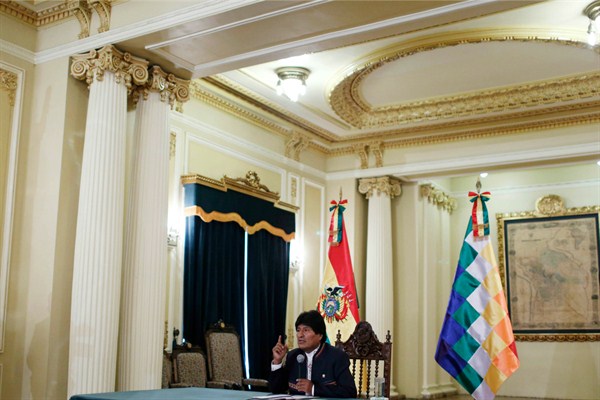On Sunday, Feb. 21, Bolivians rejected a referendum that would have allowed long-serving President Evo Morales to run for a fourth term in office, continuing a recent trend across Latin America of citizens voting for change. As the country’s first president of indigenous descent in a nation where between 40 percent and 62 percent of the citizenry self-identify as indigenous, Morales remains popular but is term-limited and must leave office in 2019. The president anticipated victory. What he did not factor in, apparently, was being overtaken by Latin America’s anti-incumbency wave.
Since his first election in 2006, Morales has assiduously worked to bring Bolivia’s downtrodden indigenous population into the political and economic mainstream, while consciously acknowledging, celebrating and promoting Bolivia’s native roots. As a former leader of the national coca growers’ movement, he has worked to change Bolivia’s approach to drug control efforts, winning support among communities that have traditionally been opposed to the central government in La Paz.
Morales has also presided over a decade of relatively strong economic growth, fueled by natural gas and mining exports to Brazil, Argentina and as far afield as China, along with economic support from oil-rich Venezuela. While expropriating the most lucrative sectors of the economy, including energy and telecommunications, among others, Morales has generally allowed the rest of the private sector to continue its activities so long as it remains supportive of his agenda—or, at the least, apolitical. Meanwhile, he has limited dissent by bringing the press to heel through various means, including legal actions, and keeping the divided opposition off-balance.

